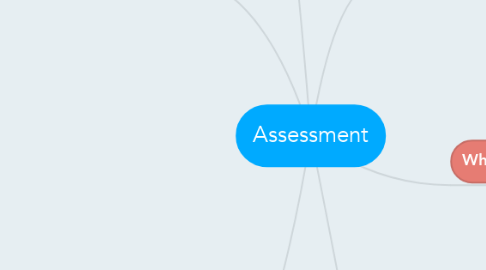
1. What is the difference between assessment and evaluation?
1.1. Evaluation analyzes and uses data to make judgments about student performance
1.2. Assessment analyzes and uses data to make decisions about improvements in teaching strategies and student learning
2. What are the types of assessment?
2.1. Formative
2.1.1. Purpose: to evaluate instruction and student learning and make modifications and adjustments when necessary.
2.1.1.1. Formal Formative Assessment
2.1.1.1.1. Quizzes
2.1.1.1.2. Planned activity
2.1.1.1.3. Specific sequence of events
2.1.1.1.4. Pre-assessment
2.1.1.1.5. Homework
2.1.1.2. Informal Formative Assessment
2.1.1.2.1. Observations
2.1.1.2.2. Questions
2.1.1.2.3. Immediate feedback and instructional adjustments
2.1.2. Mastery Learning
2.1.2.1. Instructional Adjustments
2.1.2.1.1. Group Work
2.1.2.1.2. Peer Tutoring
2.1.2.1.3. Questioning
2.1.2.1.4. Modeling
2.1.2.1.5. Changing Sequence
2.1.2.1.6. Concept Mapping
2.2. Summative
2.2.1. End of a large chunk of learning
2.2.2. Review what you want to do
2.2.3. Criteria for ensuring high-quality assessment
2.2.4. Examples: Standardized testing, final exams, major cumulative projects
2.3. Interim/Benchmark
2.3.1. Periodic testing throughout the school year
2.3.2. Little to no student feedback

